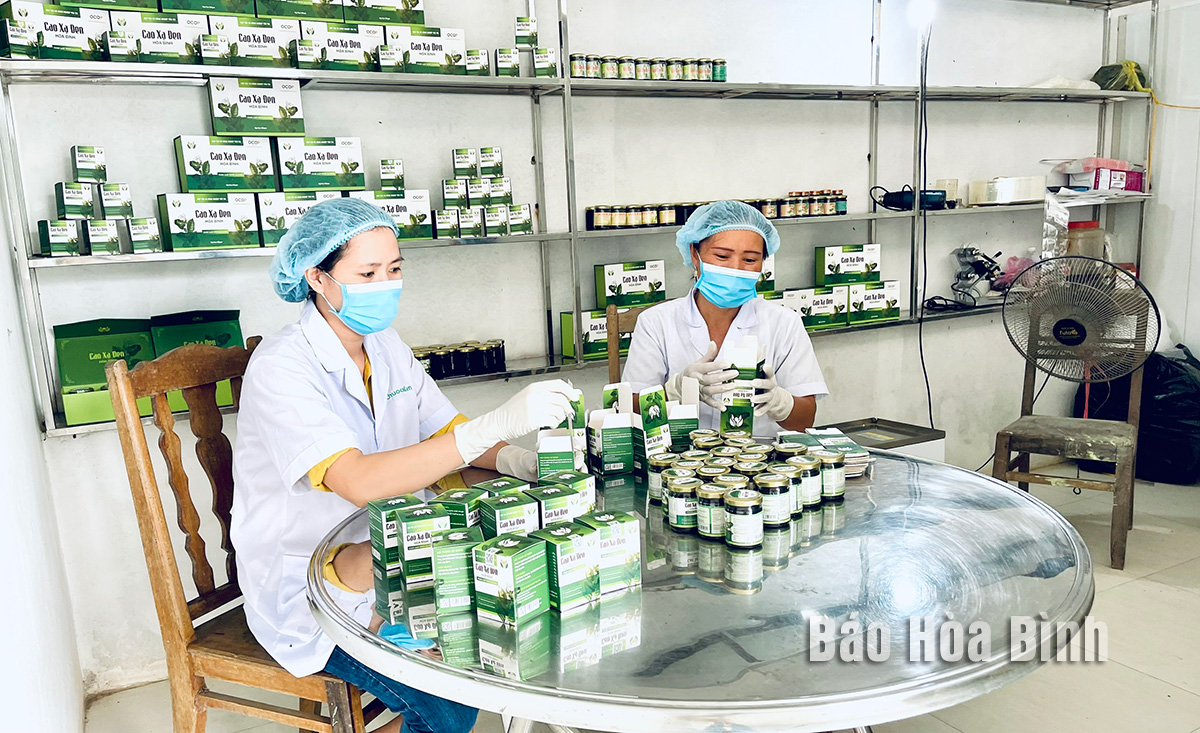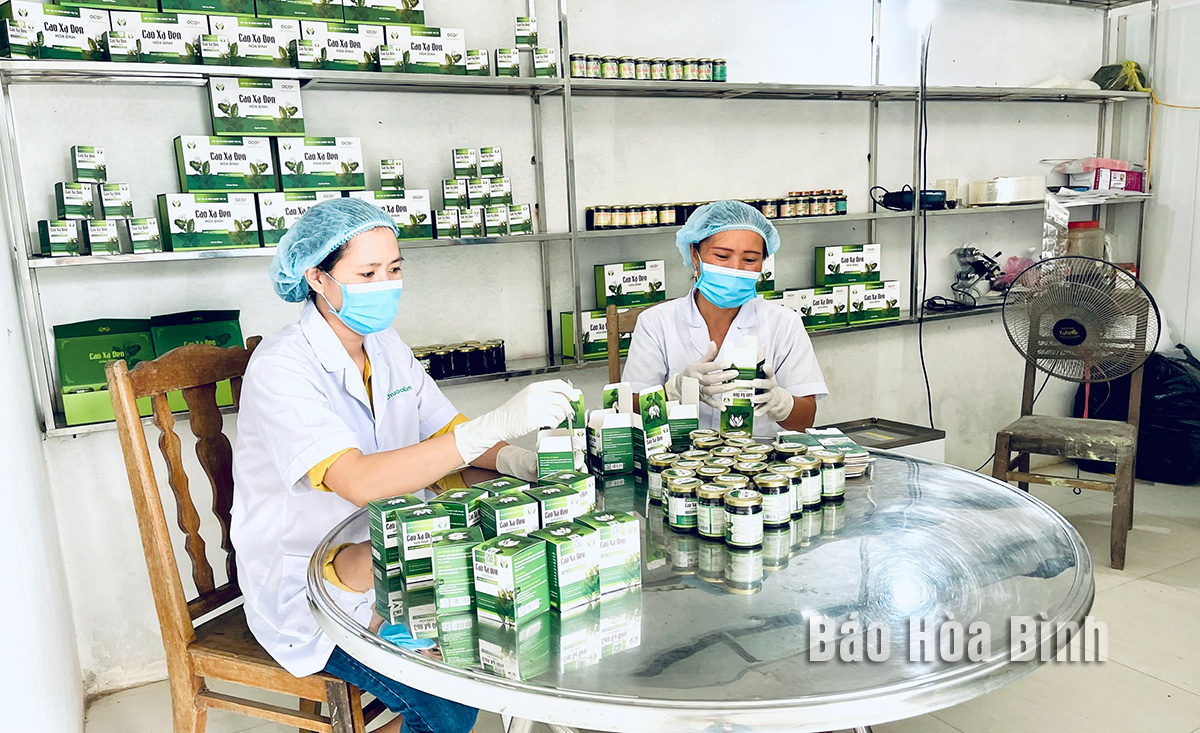
Recognising the role and importance of developing the collective economy, the northern province of Hoa Binh has promptly issued support policies to propel the development of the economy, making important contributions to local socio-economic development.

Black star apple products of Yen Tri agricultural
cooperative in Yen Thuy district have been recognised as meeting the 3-star
OCOP standard.
The province is now home to 339 cooperatives operating in the
agriculture sector, providing services for members in cultivation, animal
husbandry, forestry, and aquaculture; and managing and operating irrigation and
rural clean water facilities. Up to 30% of them have products certified by
VietGAP, GlobalGAP, meeting food safety and organic conditions; 10 cooperatives
and one working group have been given domestic cultivation area codes by the
Department of Agriculture and Rural Development; while four others are awaiting
approval for export cultivation area codes. These cooperatives play an important
role in ensuring the effectiveness of social welfare, bringing many benefits
through services to the community members and rural economic life, actively
contributing to the transformation of crop and livestock structures, increasing
agricultural productivity and yield, and improving people's lives that benefit
new rural development drive.
Last year, 70 new cooperatives (75% higher than the plan) and 12 working groups
were established in the province; while 15 cooperatives, 12 working groups, and
one people's credit fund were dissolved. The locality now boasts 758 collective
economic entities, including 546 cooperatives, three people's credit funds, and
209 working groups. There are 640 active and effectively operating collective
economic entities, 79 cooperatives, and 39 working groups that ceased
operations. They draw 16,300 members and 28,000 workers. The average income in
cooperatives reached 4.54 million VND (189 USD) per person per month.
It is evident that the number of collective economic entities is increasing,
and their operational quality is gradually improving, actively supporting the
development of the member household economy through input and output services.
Many new cooperatives have been established while weak ones have ceased
operations or been encouraged to dissolve.
This year, following the provincial Party Committee’s Action Programme No.
11-CTr/TU dated December 6, 2022, implementing the 13th Party Central
Committee’s Resolution No. 20-NQ/TW dated June 16, 2022, on continuing to innovate,
develop and enhance the effectiveness of collective economy in the new phase,
the provincial People's Committee has issued several key measures to create a
positive transformation in the development of the collective economy at the
local level.
According to data from the Hoa Binh Provincial Party Committee, the industrial production index for the first six months of 2025 is estimated to have increased by 20% compared to the same period last year. This marks the highest year-on-year growth rate for this period since 2020.
In the first six months of 2025, Hoa Binh province’s export turnover was estimated at 1.145 billion USD, marking an 18.11% increase compared to the same period in 2024. Import turnover was estimated at $ 804 million, a 17.15% increase, which helped the province maintain a positive trade balance.
The lives of the ethnic minority farmers in Tan Lac district have gradually improved thanks to the new directions in agricultural production. This is a testament to the collective strength fostered through the professional associations and groups implemented by various levels of the district’s Farmers’ Union.
With the motto the "product quality comes first,” after nearly one year of establishment and operation, Muong village’s Clean Food Agricultural and Commercial Cooperative, located in Cau Hamlet, Hung Son Commune (Kim Boi district), has launched reputable, high-quality agricultural products to the market that are well-received by consumers. The products such as Muong village’s pork sausage, salt-cured chicken, and salt-cured pork hocks have gradually carved out a place in the market and they are on the path to obtaining the OCOP certification.
In the past, the phrase "bumper harvest, rock-bottom prices" was a familiar refrain for Vietnamese farmers engaged in fragmented, small-scale agriculture. But today, a new spirit is emerging across rural areas of Hoa Binh province - one of collaboration, organisation, and collective economic models that provide a stable foundation for production.
Maintaining growing area codes and packing facility codes in accordance with regulations is a mandatory requirement for agricultural products to be eligible for export. Recently, the Department of Agriculture and Environment of Hoa Binh province has intensified technical supervision of designated farming areas and packing facilities to safeguard the "green passport" that enables its products to access international markets.



